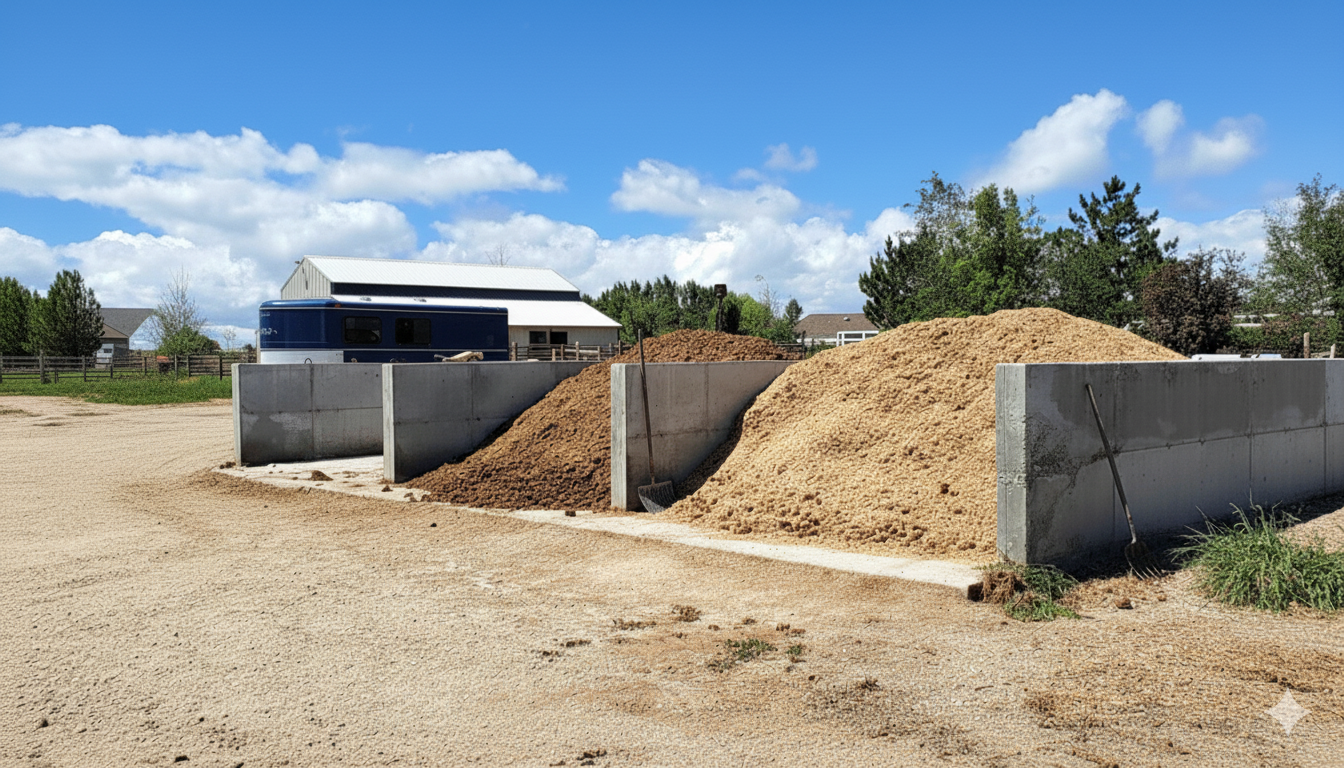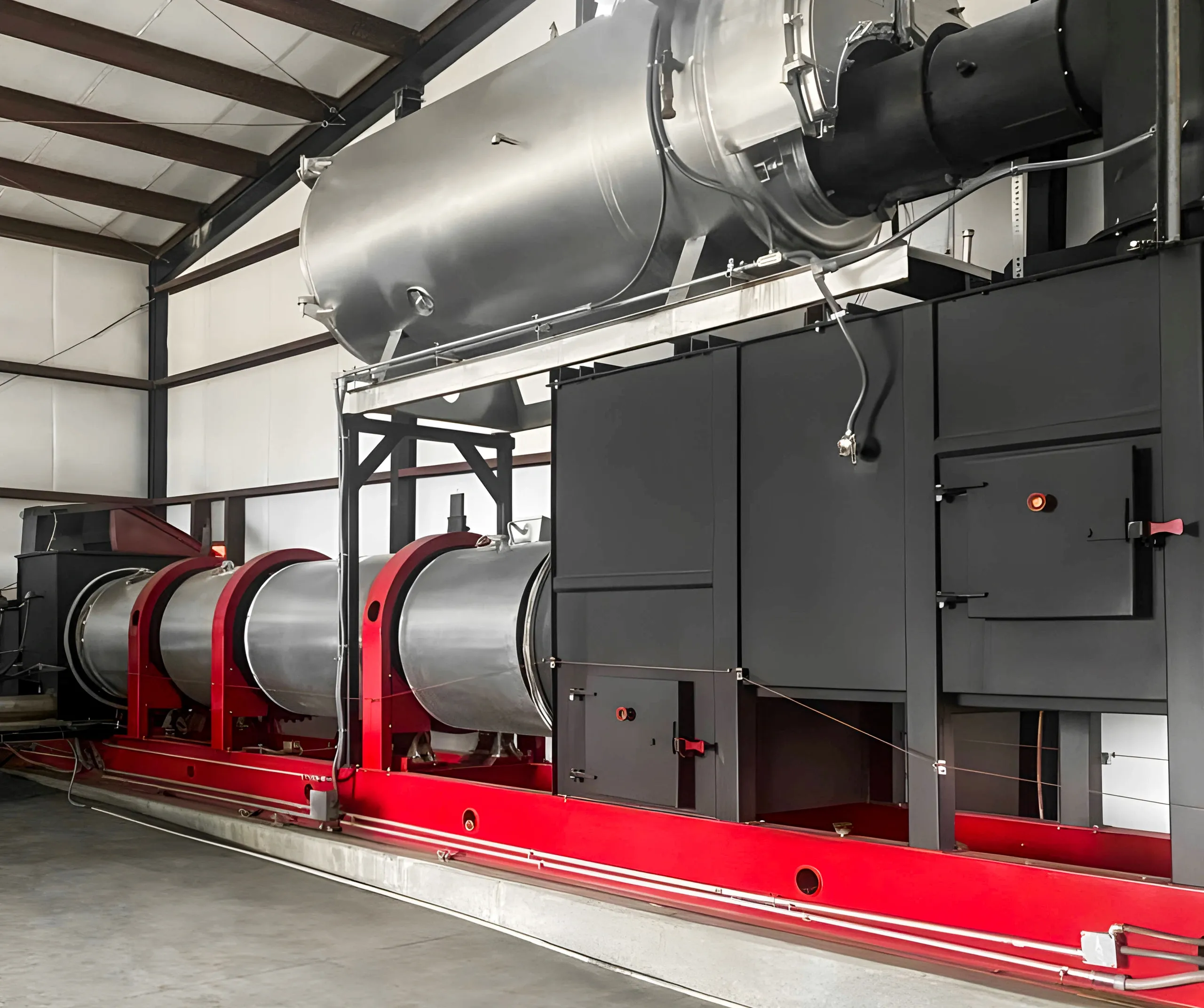SunnyDay Renewables is bringing innovation to Wellington, Florida. Our new Wellington facility will make and sell agricultural quality biochar, a charcoal-like material used to improve soil health and benefit the environment by supporting sustainable agriculture and reducing harmful emissions. Biochar is made by recycling organic waste (like wood or crop leftovers) in a low-oxygen environment.
SunnyDay Renewables' biochar supports our farmers by improving soil fertility, retaining water, supporting healthy microbes, and reducing fertilizer costs. Farmers who consistently use biochar can increase crop yields by an average 10%, and cut emissions associated with farming by 20% according to evidence from hundreds of studies.
SunnyDay Renewables' biochar supports our environment by locking carbon in the soil, cutting greenhouse gases, improving water quality, reducing chemical fertilizer use, and recycling farm waste into something valuable.
SunnyDay Renewables' biochar supports our communities by absorbing manure odors and harmful compounds and reducing runoff into our waterways.
We operate from a state of the art facility in Wellington, Florida.
This facility was developed with the specific desire to offer an affordable, environmentally conscious way of disposing of horse manure within the village of Wellington.
OUR MISSION:
At Sunnyday Renewables we have a circular business model where we can take a waste product such as horse manure and turn this into a wonder-product called biochar.
This product is then used to further offer environmental enhancements.
Biochar is a stable form of carbon which can be used in a number of industries, but primarily for agriculture. As the manure is treated within our facility, a process called pyrolysis takes place where the manure is burnt in an oxygen free environment.
Due to how efficient the equipment is no smoke or odors are emitted in this process. Furthermore, electricity is generated as a byproduct of this process which is feedback to the FPL grid.
As well as producing a soil amendment and renewable electricity, Biochar actually removes carbon from the atmosphere which is critical to mitigating the negative environmental effects of a changing climate. Biochar production is one of the most effective ways of removing carbon from our atmosphere.

Since Wellington became a town in 1995, the amount of horse manure in the Equestrian Preserve Area has more than doubled to over 120 tons each year. But safe and affordable ways to get rid of it have only gotten harder to find. The main challenges are that manure is full of phosphorus, which harms the Everglades, there is too much manure in a short season for expensive systems to make financial sense; and Florida law classifies manure as farm waste—meaning so it is not tightly regulated despite causing big environmental problems.
Early on, Wellington had to stop pumping runoff straight into the Everglades after the Everglades Forever Act forced changes. The Village replumbed canals and set best practices, but a major crisis hit in 2006 when the Plant Factory, a local disposal site, was shut down after manure piles grew 40 feet high. The Wellington Equestrian Alliance stepped in to get approval for land application with monitoring, while the Village tried and failed to build its own disposal plant.
Today, the manure problem is much worse and there hasn't been a viable long-term solution. Some manure goes to farms like those in Belle Glade, but much is dumped illegally, especially in Loxahatchee canals. Recycling projects have fallen apart, and no long-term, affordable, and environmentally safe solution has been found. Even though Wellington planned space for a treatment facility, the manure crisis has dragged on for almost 20 years, and time is running out to fix it. That's where biochar comes in.

Wellington's manure problem: Large piles of organic waste that create environmental and health issues

SunnyDay Renewables' state-of-the-art biochar reactor: Converting manure into valuable biochar
Biochar is SunnyDay Renewables' clean and sustainable solution for Wellington's manure problem. Converting farm waste into biochar through a low-oxygen process stops harmful compounds and greenhouse gases from being released into the air.
Sunnyday Renewables is reducing excessive manure dumping by ensuring waste is recycled into something valuable–biochar that strengthens soil, supports farmers, and protects the environment. Our biochar delivers:
Absorbs odors and harmful compounds from manure.
Prevents harmful runoff from entering waterways.
Helps restore nutrients back into soil, reducing the need for chemical fertilizer.
Locks carbon in the ground, reduces greenhouse gases, and cuts the need for chemical fertilizers.
At SunnyDay Renewables, sustainability is at the core of everything we do. By turning farm waste into biochar, we deliver a solution that's good for farmers, residents, and the planet. Biochar is a proven, science-backed technology that transforms Wellington's manure problem into a long-term environmental and economic opportunity.
Biochar locks carbon safely in the soil instead of releasing it into the atmosphere, helping the environment.
Biochar absorbs harmful compounds, reduces manure odors, and prevents runoff into waterways.
By improving soil health, biochar reduces the need for synthetic fertilizers that hurt the environment.
Biochar reduces fertilizer costs, boosts yields, and turns manure from a costly waste problem into a valuable resource.
Biochar addresses Wellington's manure problem delivering cleaner air, healthier waterways, and smarter waste management to reduce public costs tied to pollution.
Recycling farm waste into biochar means less waste, lower emissions, and long-term environmental resilience.
Interested in purchasing biochar or discovering how it supports farmers, supports our community, and protects Wellington's environment? Contact SunnyDay Renewables today.